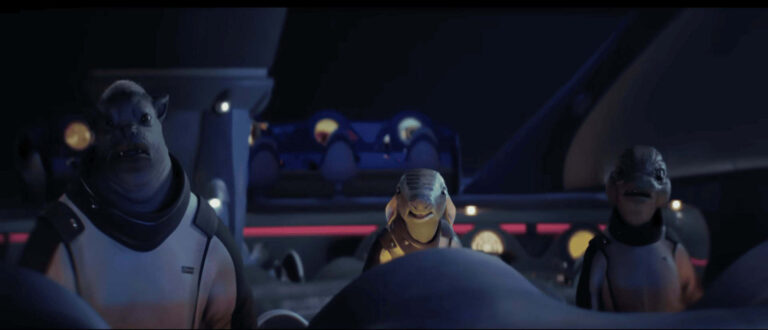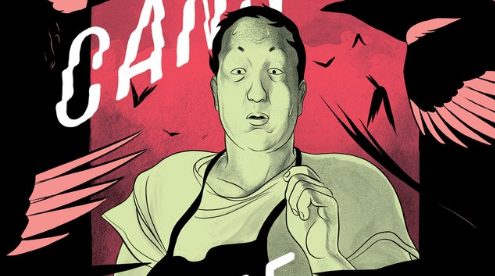How fiction made AI?: Books published before Artificial Intelligence boom
Is it possible to turn fiction into reality? We know that there’s no way zombies or gnomes emerge from the Earth and walk among us, but the Sci-fi genre is another type of fiction, one that resides in the speculation of the future based on what we see and know. They are stories about scientific advances that offer us a glimpse of what could happen or what awaits us. During its “golden years,” Artificial Intelligence has ventured into realms where mathematics was tied by their time. But now, as AI becomes a common and daily topic, how have we formulated and understood the multiple aspects that AI brings to us? What did Books say about it?
The Story of Sci-Fi
Isaac Asimov was a famous Sci-Fi writer and professor of biochemistry. With that background, he created Sci-Fi stories with science and detective adventures. Some of his books have appeared on-screen multiple times, including the notable “I, Robot” starring Will Smith, where he plays with the “three rules of the robotic.” After World War II, he said that the tragedy of Hiroshima changed how people viewed Sci-Fi.
The Pulp Magazines phenomenon, with its cheap paperbacks featuring sensual covers and detective plots during a time of war and despair, changed to a new form of approach. These stories, once seen as mere fabrications about dystopias, wars, robots, and more, began to take on a new form. Myths could live on paper with their fantasy, but Sci-Fi revealed a harsher condition of the human experience: the fear of what our minds could create.
Creating Consciousness
In 1818, Mary Shelley wrote Frankenstein, or The Modern Prometheus, where a scientist obsessed with the idea of creating life makes a monster that, upon gaining consciousness about itself and the world, turns against its creator. The term Prometheus refers to the act of stealing from God the flame of life to create one against his watch.
She not only wrote the first Sci-Fi book we acknowledge but also laid the groundwork for many AI-related stories we know today, long before every tech and electronic system we know was invented. So, is the Promethean plot part of our nature when it comes to creating something similar to us? To play with the subjects of soul and God?
Can Machines Think?

The first person to initiate scientific discussion on this topic was Alan Turing, often considered the father of computer science. In his works, he theorized about human-like machines. He suggested that judging this theorized artificial thinking as a “Promethean irreverence” was more an emotional response rather than a scientific matter.
He also proposed a test: if a person is unable to distinguish between a human and a machine based on responses and cannot identify which was which, then the machine would be considered to have achieved “human thinking.”
Do Androids Dream of Electric Sheep?
Philip K. Dick’s 1968 novel delves into a world where androids are day-to-day things. It is set in a post-apocalyptical future, where androids are servants of humans and are physically indistinguishable from one another. Here, the nature of human consciousness and identity takes on a philosophical dimension. The protagonist, Rick Deckard, hunts rebel androids using a test based on one of Turing but adapted to his own story, the Voigt-Kampff Test, whose questions focus on empathy and androids, unable to feel it, get revealed by this.
This task becomes more challenging with the introduction of Nexus 6 androids, which are nearly indistinguishable from humans on the Voigt-Kampff level. This raises a more subtle and human question about creating the life that resembles us: Can they feel emotions? And if they do, what does that mean for us?
The Veldt
In The Illustrated Man (1951), Ray Bradbury presents a story about a family in a futuristic house, where the children of the home have a room with Artificial Intelligence, creating any scenario or image they desire. This concept bears a resemblance to modern AI tools like ChatGPT. However, Bradbury turns this premise into a horror story, questioning how seemingly innocent children and a machine that follows rules could lead to unsettling outcomes.
Dune
Everybody knows Dune (1965) by Frank Herbert, now Denis Villeneuve brought it to the screen and created quite a noise around the sci-fi cinema. The story is set in a future where AI had once caused great destruction to humanity. In Dune, society has rejected AI and advanced technology, and humans have pushed themselves to develop their brains to the point of machine-like efficiency to avoid the need for them.
Dune offers a catastrophic vision of what could happen, contrasting with previous stories named here, where machines sought to become human. In Dune, humans strive to become perfect, akin to machines, through the Mentats, Bene Gesserit for controlling DNA, and the search for Melange as a door to ancient knowledge.
Conclusion
Mary Shelley’s scientist Frankenstein was horrified by what he had created. Today, AI can evoke both horror and assistance, reflecting a new and vivid era. What was once mere speculations have become a reality. As stories of adventure, philosophical questions, and Promethean theories take on day-to-day relevance, we continue to explore what might happen next.
For More Great Content
Are you desiring top-tier content that covers everything? From thrilling sports and intoxicating entertainment news to gaming tips and professional betting advice, Total Apex covers it all. Delve into our no-fluff articles to stay ahead of the game with the latest sports action, uncover the hottest trends in entertainment, and get the latest scoops in the gaming industry that will take your experiences to the next level.
Finally, our betting advice will give you a decisive edge over the competition and increase your odds of beating the books. Whether you’re looking to stay updated or gain a competitive edge, Total Apex is your one-stop shop for all things compelling and relevant. Don’t forget we cover Fantasy Sports, too!
Check out all our sites: Total Apex Sports, Total Apex Fantasy Sports, Total Apex Entertainment, Total Apex Sports Bets, and Total Apex Gaming. Out of the ashes of obscurity will rise a beast. Always remember to Respect The Hustle! Follow us on Twitter/X @TotalApexSports to stay informed.







